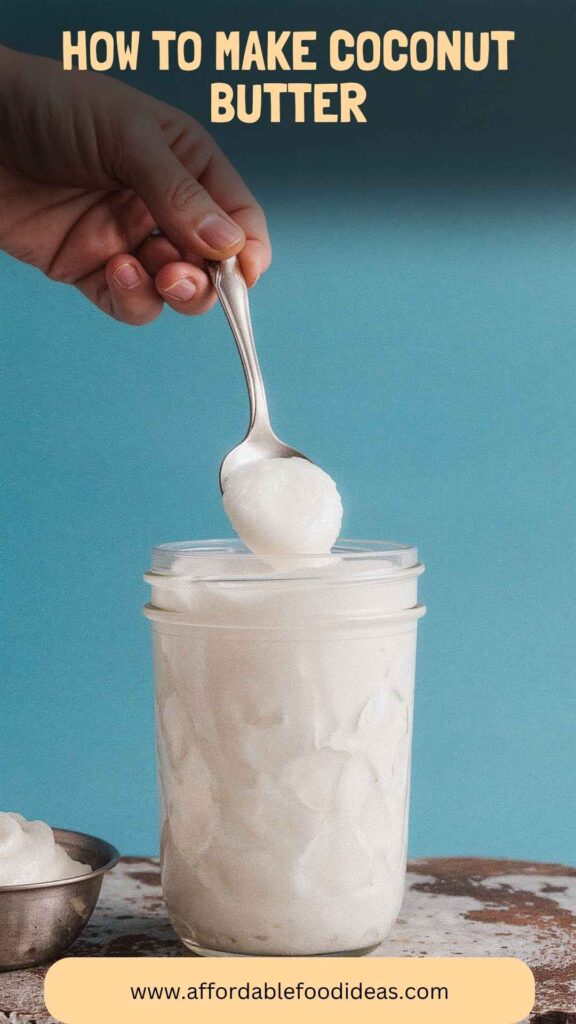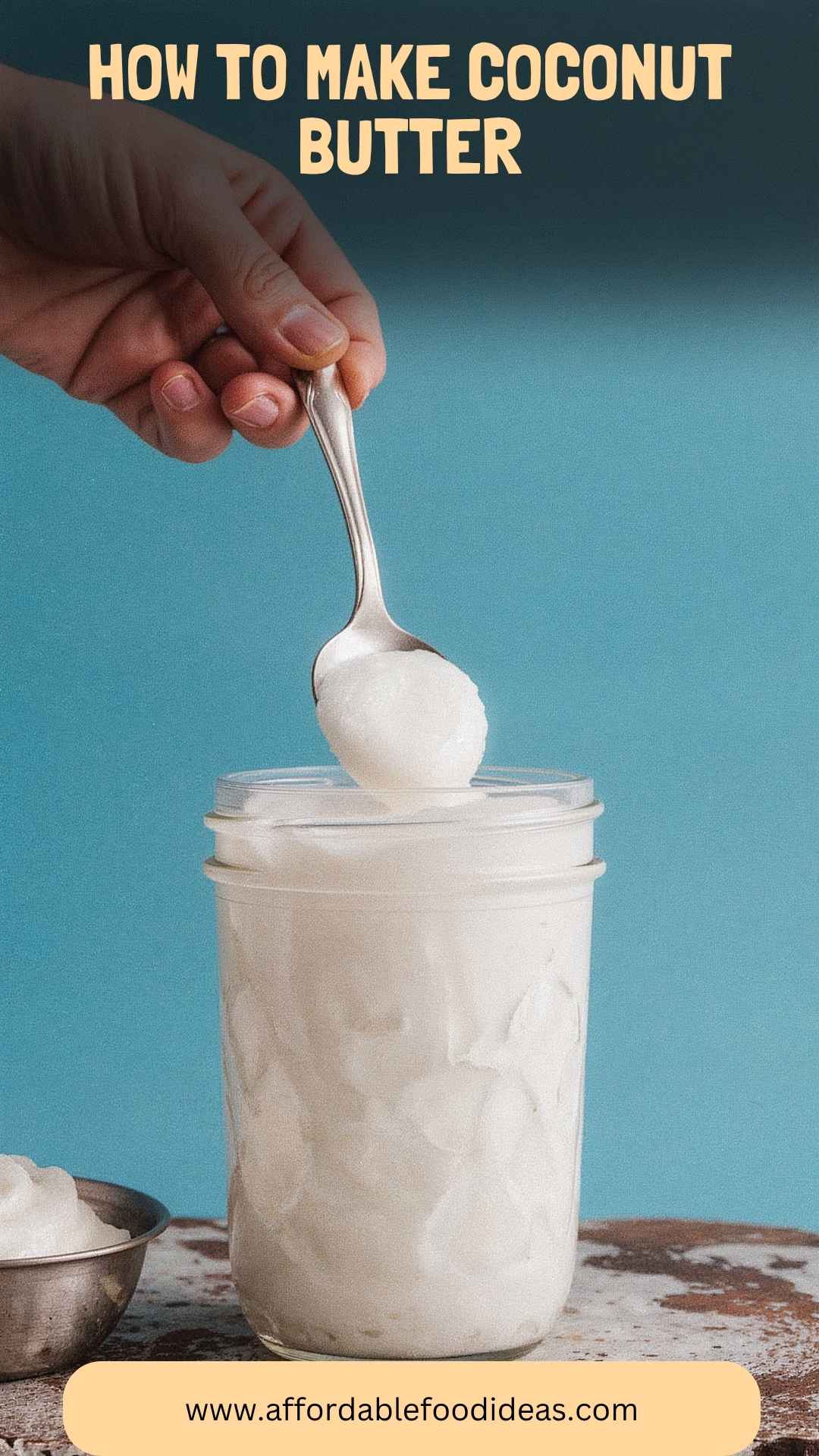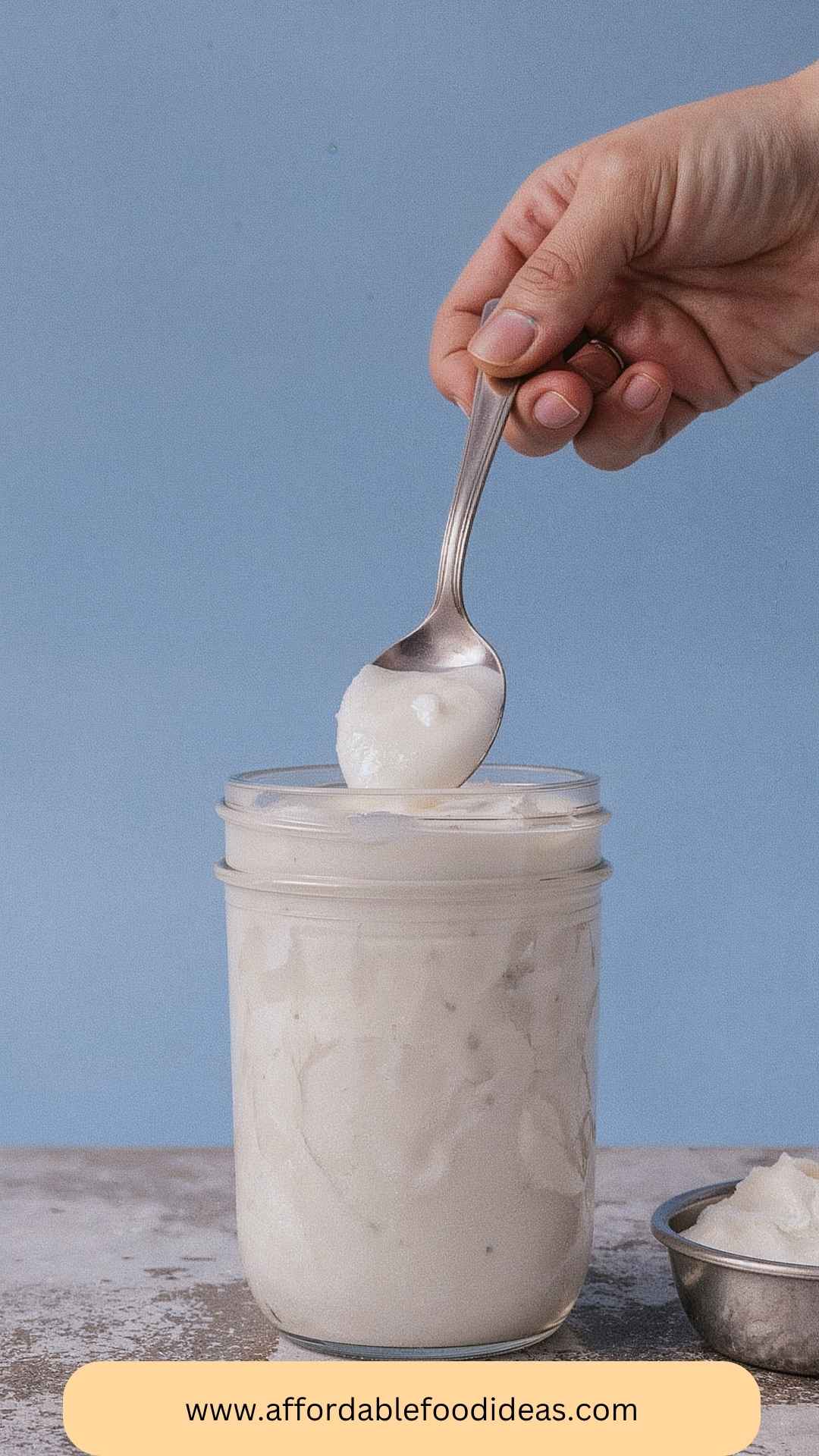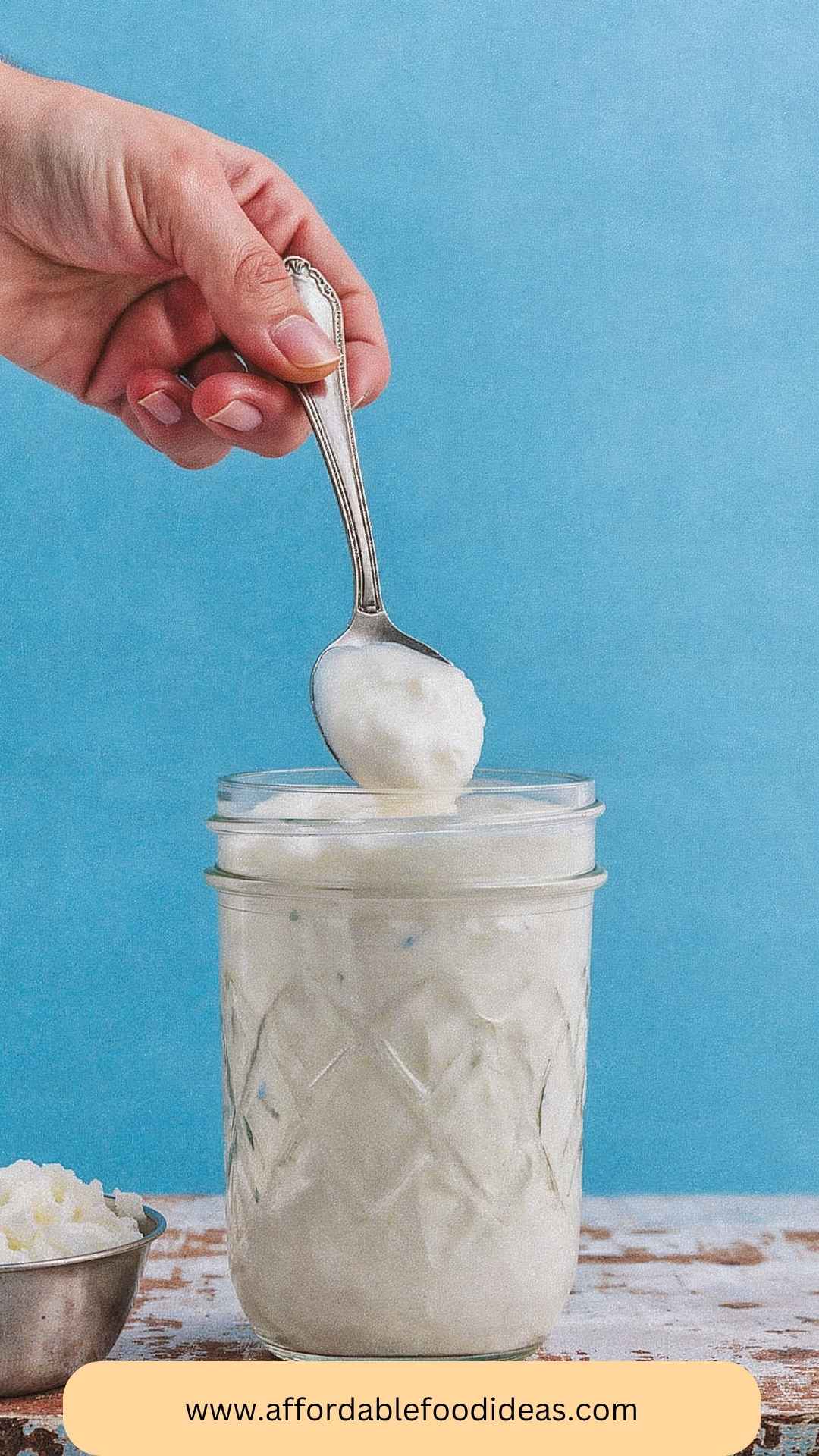Nutrition Facts
Servings 16
- Amount Per Serving
- Calories 3kcal
- % Daily Value *
- Total Carbohydrate 1g1%
- Sugars 1g
* Percent Daily Values are based on a 2,000 calorie diet. Your daily value may be higher or lower depending on your calorie needs.

Coconut butter is a versatile ingredient that can elevate many foods. Imagine spreading it generously on toast or drizzling it over pancakes, oatmeal, or smoothie bowls. You can stir it into coffee for a creamy, tropical twist or use it as a dip for fresh fruit slices.
It's also a fantastic addition to baked goods like cookies or brownies for that rich, coconut flavor. Let your imagination run wild! Your culinary options are practically endless.

Have you ever experienced the joy of creating something tasty from scratch? That's one of the reasons I love making coconut butter! It's not just a flavored spread; it’s packed with healthy fats, fiber, and essential nutrients from the coconut.
Rich in vitamins and minerals, this butter can support heart health and provide quick energy. Plus, it contains no preservatives or unhealthy additives. With just a few simple ingredients, you can whip up a luscious spread that works in both sweet and savory dishes. It’s comforting to know what goes into your food, and trust me, there's nothing better than homemade!
I first stumbled across this recipe during a weekend cooking adventure. I had some coconut on hand and was feeling adventurous. Why not turn it into butter? I decided to give it a shot, and I haven’t looked back since. There’s something satisfying about seeing plain dried coconut transform into a smooth, creamy concoction. And trust me, once you taste the homemade version, you’ll want to skip the store-bought variety forever.
Let’s gather our ingredients. Everything you need can be found at your local grocery store or health food store. Here's what you'll need:

Let’s dive into the steps! Making coconut butter is simple and gives you control over the ingredients and flavors. Here’s how I do it:
Before starting, make sure all your ingredients are ready. Measure out your coconut and any other components you wish to add. Having everything organized makes the process smoother. I like to have my measuring cups and spoons lined up like soldiers on the counter — it feels professional!
Add the finely shredded coconut to your high-speed blender or food processor. I can’t emphasize this enough: a powerful blender works best. Start blending on low, gradually increasing the speed.
At first, it may look like shredded coconut. Don’t worry; keep blending. It will release its natural oils, transforming into a thick paste. This usually takes about 5-10 minutes. Stay patient!
Once your coconut has become buttery and smooth, it's time to add the maple syrup or honey, salt, and vanilla extract. These ingredients will take your coconut butter to the next level. Blend again until everything is well incorporated. At this stage, the mixture should be creamy and glossy.
If you're feeling a bit adventurous, now's the moment to sprinkle in some ground cardamom or cinnamon. These spices add a delightful warmth and complexity. Blend for another minute or so to combine thoroughly.
Here’s where the magic happens: taste your coconut butter. If you want it sweeter, just add more maple syrup or honey. If you want a hint of spice, sprinkle in a bit more cinnamon. Blend again as needed.
Transfer the lovely coconut butter into a clean, airtight jar. You can store it at room temperature for about 1-2 weeks. If it hardens in cooler temperatures, simply give it a few seconds in the microwave or let it sit out until it softens up again.
Feel free to get creative! Here are some ideas:

Making coconut butter is not only easy but also rewarding. With just a few simple ingredients and a bit of patience, you can create a delicious spread that enhances various dishes. Plus, it’s a great way to impress friends and family with something homemade. The taste of freshly made coconut butter is unparalleled.
So why not take the plunge? Grab your coconut, fire up that blender, and enjoy the journey of making your own coconut butter. It’s a treat for your taste buds and a step toward healthier eating. Happy blending!
Coconut butter is a versatile ingredient that can elevate many foods. Imagine spreading it generously on toast or drizzling it over pancakes, oatmeal, or smoothie bowls. You can stir it into coffee for a creamy, tropical twist or use it as a dip for fresh fruit slices.
Add the finely shredded coconut to your high-speed blender or food processor. I can’t emphasize this enough: a powerful blender works best. Start blending on low, gradually increasing the speed.
At first, it may look like shredded coconut. Don’t worry; keep blending. It will release its natural oils, transforming into a thick paste. This usually takes about 5-10 minutes. Stay patient!
Servings 16
* Percent Daily Values are based on a 2,000 calorie diet. Your daily value may be higher or lower depending on your calorie needs.